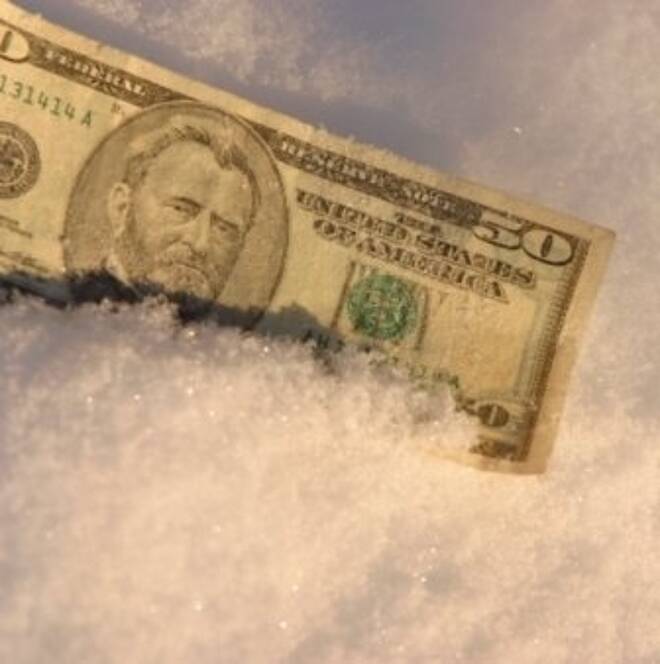Advertisement
Advertisement
Extreme Cold Weather Boosting Profits in This Natural Commodity
Updated: Aug 23, 2015, 07:00 GMT+00:00
Just like any other commodity, natural gas prices are affected by supply and demand metrics. If demand increases and supply remains the same (or
Before you start judging where the prices will go next, you have to see what kind of factors can affect the demand or supply. Consider gold prices, for example. If the demand for gold increases and, at the same time, there’s a discovery of a major mine—the prices may not move as much as anticipated if the mine wasn’t discovered. The reason behind this is simple: there’s supply to meet the demand.
A few factors that affect the natural gas demand and supply are playing out in favor of those who are bullish on it. For example, the commodity is highly affected by weather.
In extremely cold weather, natural gas is used to heat up homes—cold weather disrupts the short-term supply due to increased demand and causes prices to soar. In extremely hot weather, we see a similar situation occur in the commodity’s prices. Power plants use more natural gas to make electricity to meet the increased use of air conditioning units in homes and buildings. This phenomenon, again, causes a disruption in the short-term supply because power plants consume more. This results in higher prices as well.
What’s happening in natural gas prices these days is the very same problem; the short-term supply is being tormented by extreme weather—in this case, extremely cold weather. We have seen some extreme winter storms and temperature drops. For example, in New York City alone, eight snow storms left 57 inches of snow on the ground. (Source: “Snow Buildup, Ice Creates Menace On High Rises, Suburban Homes,” CBS New York web site, February 19, 2014.) Other parts of the U.S. and Canada saw extreme cold weather as well.
Will natural gas prices continue to increase?
Looking at the long-term trend, it’s interesting, to say the very least. The prices have come down significantly from their peaks around $13.00 in 2008. Currently, the commodity trades around $6.00.
Chart courtesy of www.StockCharts.com
At the same time, one phenomenon should also be noted: when prices are low, producers don’t have much incentive to produce more. This results in lesser supply.
As I have mentioned in these pages before, natural gas is a long-term play, and I am bullish on it. I can’t put a specific target as to where it will go, but all the factors are suggesting it can continue to go higher.
With that said, investors have to keep one factor in mind: there will be fluctuations in day-to-day prices. So, if investors overleverage their portfolio with natural gas, they may run into troubles if prices see a sharp decline—something we have been seeing since the beginning of the year. Trading ranges of natural gas prices have increased.
If this trade in natural gas continues to materialize, investors may make money by buying into an exchange-traded fund (ETF), such as United States Natural Gas (NYSEArca/UNG). Investors can also profit heavily by considering buying companies that produce natural gas.
This article Extreme Cold Weather Boosting Profits in This Natural Commodity was originally published at Daily Gains Letter
About the Author
FX Empire editorial team consists of professional analysts with a combined experience of over 45 years in the financial markets, spanning various fields including the equity, forex, commodities, futures and cryptocurrencies markets.
Advertisement
